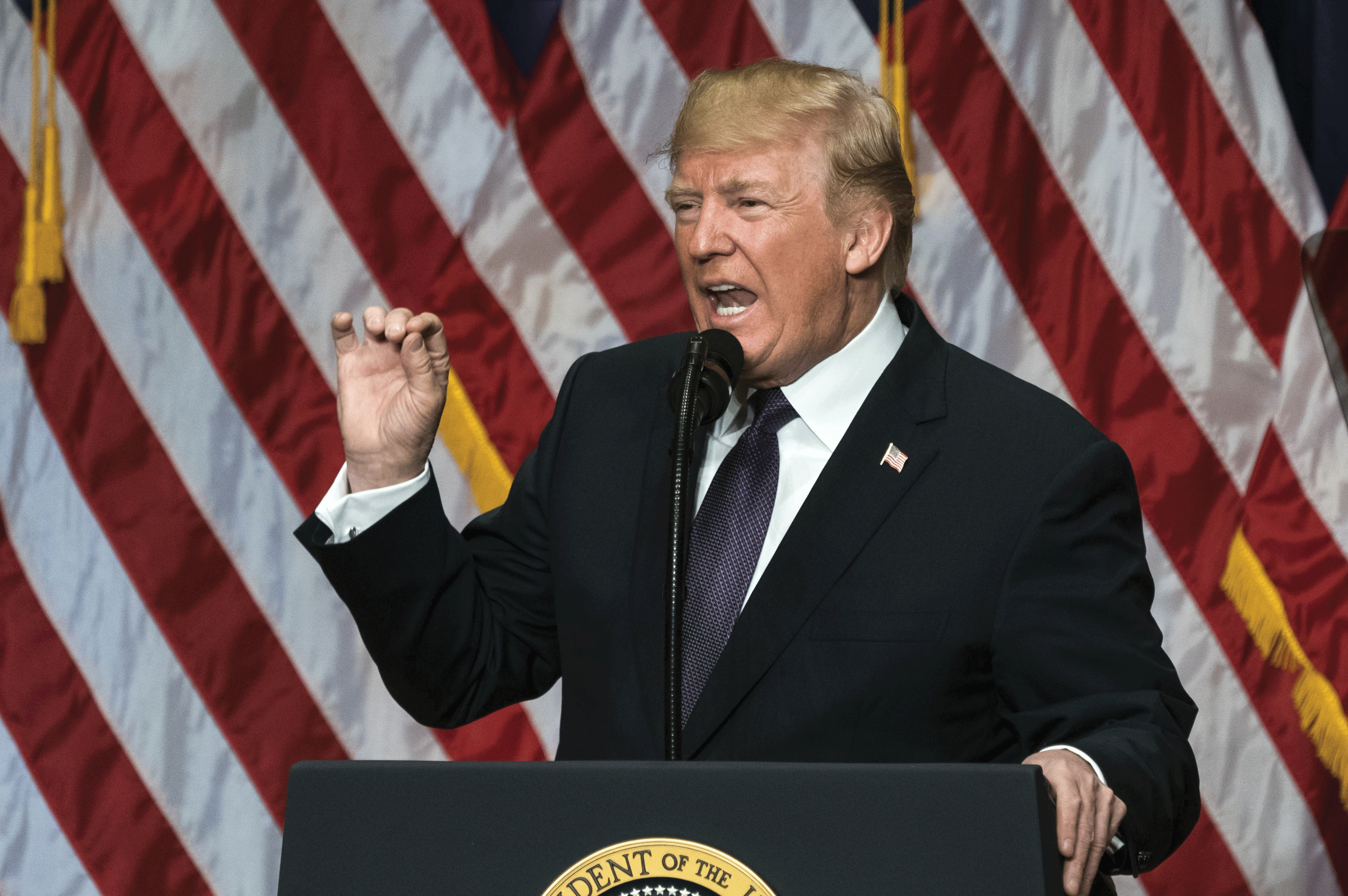Plaintiff in Chief: a portrait of Donald Trump in 3,500 lawsuits
James D. Zirin
All Points Books (St Martin’s Press), £20
★★★★★
This book’s curious subtitle is based on an analysis undertaken by a US newspaper. The analysis revealed that, during the past 30 years, Donald Trump and his companies had been involved in at least 3,500 legal actions in federal and state courts. Their involvement had been more or less equally divided between cases where proceedings were being brought and those where they were being defended. These ranged widely from ‘skirmishes with casino patrons, to million-dollar real estate suits, to personal defamation lawsuits’.
As the author ably demonstrates, Trump, who of course was recently acquitted in his impeachment trial, not only loves having enemies but is also very fond of engaging in litigation. The combination of enemies and litigation constitutes a marriage made in heaven. Putting this more bluntly and in Trump’s own words, he not only ‘love[s] to have enemies’ but also ‘like[s] beating them to the ground’ and ‘love[s] to crush the other side’.
However, Trump does not allow loving his enemies (in his own way, of course, rather than the biblical one) to blind him to the fact that there may also be great pleasure to be had in challenging the widely accepted view of the established legal order, especially where general acceptance of his view of the matter could be to his advantage in due course.
This can be illustrated by considering Trump’s approach to the question of whether US presidents possess the power to pardon themselves in respect of their wrongdoings. While asserting that he has done nothing wrong (and therefore the question of the power of self-pardon does not arise), Trump also asserts that ‘numerous legal scholars’ are of the opinion that the power does indeed exist but conspicuously fails to name any of them, thus making it impossible to assess the quality of their opinion. The preservation of his sources’ anonymity is particularly odd as the US Department of Justice had already relied on the nemo iudex in sua causa principle when advising president Nixon that self-pardon was not an option. It would, therefore, be entirely reasonable for a detached observer to expect to see some more convincing authority than ‘numerous legal scholars’ cited as to why any attempted self-pardoning by Trump would not fall foul of the nemo iudex principle. Although the question of self-pardoning may never come before the US Supreme Court, if it does, there can be little or no doubt that Trump would feel terribly cheated if someone else had been responsible for causing the proceedings to be brought.
All readers of this book (unless they are true Trumpophiles) are likely to derive a great deal of amusement from it. However, their amusement may well be reactions to different triggers. Some readers may simply place Trump’s attitude towards litigation in the you-couldn’t-make-it-up category and laugh it off accordingly. Others (while also laughing) may in truth be using levity as the defence mechanism which Beaumarchais identified more than two centuries ago, when he said ‘I make myself laugh at everything, for fear of having to weep’.
Ian McLeod is former head of law at London Metropolitan University
































No comments yet